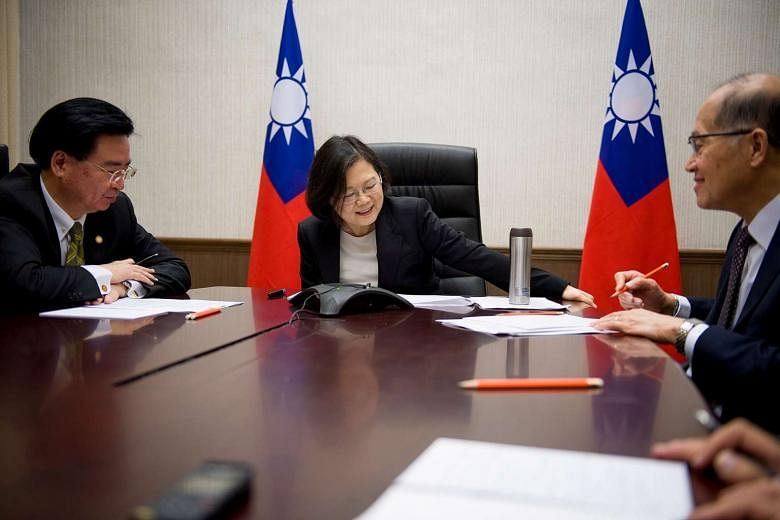An annual defence budget Bill passed by the US Congress contains for the first time a section on senior military exchanges with Taiwan, the island's semi-official news agency reported on Friday (Dec 9), only days after a protocol-breaking phone call between US President-elect and Taiwan's President Tsai Ing-wen incurred China's ire.
The US$618.7 billion (S$880 billion) National Defence Authorisation Act was approved by a 92-7 vote at the US Senate on Thursday (Dec 8), days after it was passed by the House of Representatives 375-34 on Dec 2.
Section 1284 of the Act calls for the Secretary of Defence to conduct senior military exchanges between the US and Taiwan at least once a year, reported Central News Agency.
"It is the sense of Congress that the Secretary of Defence should conduct a programme of senior military exchanges between the United States and Taiwan that have the objective of improving military-to-military relations and defence cooperation between the United States and Taiwan," the clause says.
It defines "senior military exchange" as "an activity, exercise, professional education event, or observation opportunity in which senior military officers and senior defence officials participate."
"Senior military officer' means a general or flag officer on active duty in the armed forces, while "senior defence official" means a civilian official at the level of Assistant Secretary of Defence or above, reported Central News Agency.
The Bill now goes to the White House for President Barack Obama to veto or sign into law before he leaves the office Jan 20.
A White House spokesman told a briefing on Thursday he did not yet have a position on the Bill to report, Reuters reported.
Similar provisions in previous defence budget Bills had been dropped after the executive branch stepped in for fear that such a move would damage US-China relations.
The latest Bill also includes other measures that goes against Mr Obama's position, including a Republican-backed US$3.2 billion increase in military spending, and a ban on closures of military bases or planned reductions in active-duty troop numbers.
The development is the latest in the evolving politics among US, China and Taiwan with the Nov 8 election of Mr Trump.
On Dec 2, Taiwan's President Tsai and the US President-elect spoke on the phone in a 10-minute conversation that broke with nearly four decades of diplomatic protocol and sparked fears of a confrontation with China, which views Taiwan as a breakaway province.
Beijing quickly lodged a protest with the US while Chinese state media slammed the move as provocative.
"It was a misjudged, if not dangerous, undermining of the consensus that bilateral relations are built on," China Daily said in an editorial on Friday in a commentary on Mr Trump's nomination of China-friendly Iowa Governor Terry Branstad as his envoy to China.


